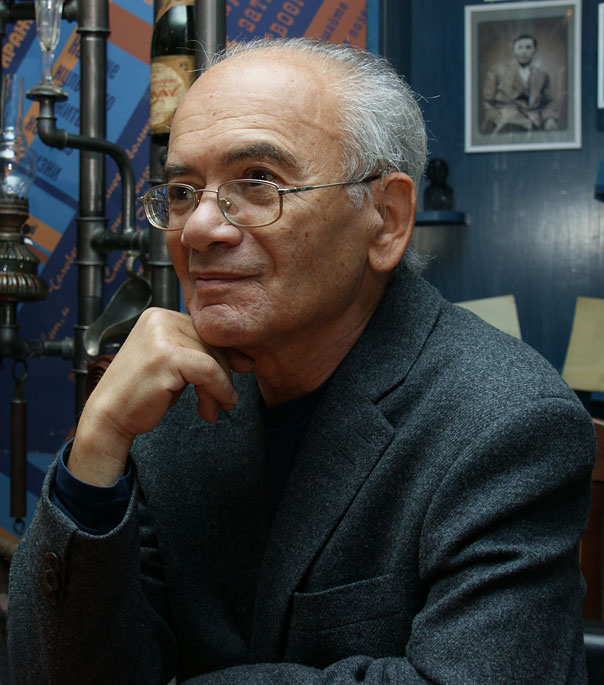
|
An Analysis of the poem Upside Down.docx Size : 11.251 Kb Type : docx |

Short Biography of Alexander Kushner
Alexander Kushner - Russian poet. The author of more than 30 books of poetry and numerous articles on classical and modern Russian poetry, collected in two books.
Born September 14, 1936 in Leningrad. The father of the future poet Lieutenant-Colonel C. S. Kushner (1911-1980) was a naval engineer.
A. Kushner studied at the philological faculty of the Pedagogical Institute. A. Herzen. In 1959-1969, taught in the school of English language and literature. Since the late 1960s moved on to professional literary career. In 1993, signed a Letter of 42".
A member of the bot of the USSR (1965), the Russian PEN center (1987). CH. the editor of the Library of the poet" (1992; 1995 - "New library of the poet"). Member of the editorial boards W crystals "Star", "Counterpoint" (1998), the virtual W-La "Art-Petersburg" (since 1996).
Married to the poet Elena Puspadewi. The only son of Eugene and his family live in Israel.
In poetry follows the principles laid down by acmeists and family on the poetics of the authors (I. Annenskii to Boris Pasternak): description of the objective world, of life and involvement in world culture (citing). Kushner alien formal experimentation, innovation: blank verse, free verse, the creation of new words.
I. Brodsky made a General assessment of the creativity of the poet: "Alexander Kushner is one of the best lyric poets of the twentieth century, and his name is destined to stand among the names dear to the heart of anyone whose native language is Russian".
Verses Kouchner characteristic modesty, proximity to prose; the skill of the poet is revealed only at a leisurely reading of these passages is in accordance with the fact, as he Kushner reveals the world around us.
Book of poems by A. Kushner was published in translation in English, Dutch, Italian. Poems have been translated into German, French, Japanese, Hebrew, Czech and Bulgarian.
Upside-Down
Once there lived an Upside-Down
Who was the talk of all the town.
If he was told to turn to right
He turned to left out of spite.
If he went sailing in a boat
No one could make him understand
Why he seem to be afloat
And what had happened to the land.
He read his letters backside-fore,
And wrote his letters backside-fore.
So if a “ton” was to be read
He read it “not,” the dunder-head!
All his life he was afraid
To cross a bridge. He’d always wade
(Unless the water was too deep
Or the embankment was too steep.)
He went into a restaurant;
The waiter said, “What do you want?”
He said, “I’d like a pair of socks
With clocks on them, and in a box.”
The circus came to town one day;
Of course he went without delay.
And everyone said Upside-Down
Was funnier than the circus clown.
Just yesterday the postman brought
A letter to him from his aunt:
“Shall I read it? P’raps I ought,
P’raps I will, p’raps I can’t.”
An Analysis of the poem “Upside-Down” by Alexander Kushner
The poem “Upside-Down” is a humorous poem by Alexander Kushner who has published 15 collections of poetry as well as two prose works. He is also known as one of the best lyrical poets of the 20th century.
The central character of the poem is an eccentric person called “Upside-Down”. As the name suggests, he acts in a very absurd manner, making everything upside down.
The poem contains some of his ‘upside-down’ acts which naturally evokes humour. No one could make him understand the reality and act in a rational manner. (“All his life he was afraid to cross a bridge). Sometimes he is depicted as being very unsure of himself and his abilities:
“Shall I read it…p’raps I can’t.”
Due to his crazy deeds, Upside-Down has become a laughing stock in his society. He also appears to be a social ‘misfit’ or one who does not fit into the society although he is not an anti-social character.
Even though the poet presents Upside-Down as an absurd and eccentric character, he also appears to sympathise with him to a certain extent. In other words, he also conveys a sense of loneliness or alienation caused by Upside-Down’s inability to conform to the social norms.
The last two lines of the poem seem to suggest that unless one conforms to society, he will not be accepted or recognized by the society:
‘You must behave as others do
If they’re to have respect for you’
The two lines, however, seem to be ambigous in that the poet may be giving an advice or he may be ironical of his advice. In other words, if a person does not follow the social norms and behave ‘as others do’ he will not be accepted by the society as the society always looks askance at anything which is unconventional even if it is something positive.
The poem has a simple rhyme scheme and an easy-moving rhythm which befits its light-hearted tone.The use of direct speech at certain places also makes the poem interesting. The humour arises mainly from the unpredictability and the absurdity of Upside-Down’s behaviour.
